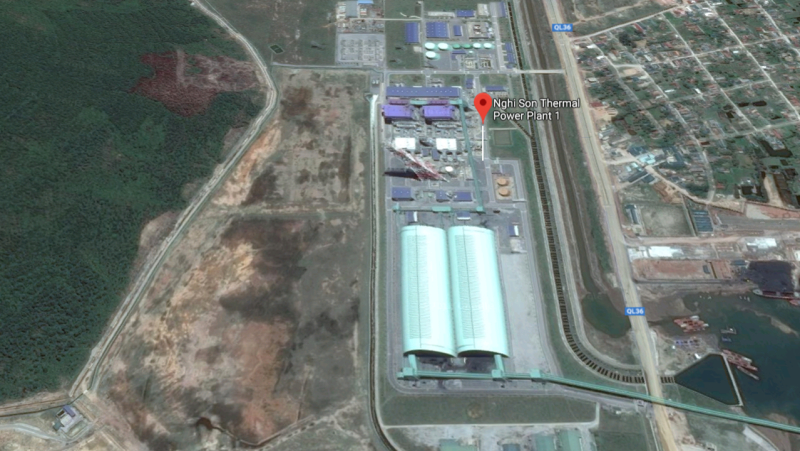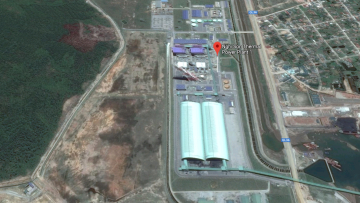Project – On record
This profile is no longer actively maintained, with the information now possibly out of date
Project – On record
This profile is no longer actively maintained, with the information now possibly out of dateWhy this profile?
The Nghi Son 2 coal-fired power plant will adversely impact both people and planet. The coal power plant will emit two times as much CO2 for every unit of power generated compared to the average power plant in Vietnam, negatively impacting public health and worsening climate change.
What must happen
The Vietnamese government should stick to its Paris Agreement goals and withdraw their permission to build new coal-fired power plants. This step was already announced in January 2016 by Prime Minister Nguyen Tan Dung, however, it should also include Nghi Son 2. Banks and financial institutions should avoid financing the plant and implement policies to withdraw any finance for new coal plants. The finance should be redirected to more sustainable, decentralized renewable energy.
| Sectors | Coal Electric Power Generation |
| Location |
|
| Status |
Planning
Design
Agreement
Construction
Operation
Closure
Decommission
|
|
|
This project has been identified as an Equator Project |
Nghi Son 2 is a coal-fired power plant currently under construction in the Tĩnh Gia district, Thanh Hoa province in Vietnam. Nghi Son 2 is being constructed next to the existing power station Nghi Son 1. It will consist of two turbines, each with a capacity of 600 megawatts, and will be developed by a consortium consisting of Marubeni Corporation and Korea Electric Power Company (KEPCO). The project will use supercritical technology and the emissions intensity has been estimated at 890-900g CO2/kWh. It will be fuelled by anthracite coal from the Hon Gai – Cam Pha coal mine in the Quang Ninh province of Vietnam.
Social and human rights impacts
Coal-fired power generation in Vietnam is already a significant threat to public health, and the construction of the Nghi Son 2 plant will further expand already existing problems. A 2017 study by Harvard University has estimated that air pollution from similar existing plants is responsible for 4,300 premature deaths in 2011. The same study has also estimated that by 2030 there will be 19,220 excess deaths per year due to coal pollution in Vietnam. Social issues will also result from the adverse effects on local farming land and aquaculture.
The air pollution impacts of coal power plants including Nghi Son 2 pose serious risks for the health and life of local people, especially children. For example exposure to pollution of CO2, mercury and arsenic can lead to lung injuries, nerve diseases and cardiovascular infections.
Environmental and climate impacts
The Nghi Son 2 power plant will emit double the CO2 per unit of power generated than the average power plant in Vietnam. It will use outdated supercritical technology, which has an estimated efficiency rate of 38.5% compared to 43.3% for the more advanced ultra-supercritical technology. It will emit roughly 10 times as much SOx as power plants using ultra-supercritical technology. The emission of SOx, combined with the emission of fine dust, NOx, CO2 and mercury will severely impact the air quality. The support of supercritical technology is against policies of the Japanese government to which JBIC must adhere.
The methodology for drafting Environmental Impact Assessments is flawed, which has led to pollution in the past. Minister for Resources and Environment, Hong Ha, has said that “current regulation on EIA has proved unfeasible, making it hard to have high-quality EIA reports”. The EIA released by JBIC earlier this year has already been conducted 2015 and is therefore out of date and has not been acted upon expeditiously.
Local aquaculture will most likely be affected because of the use of sea water for cooling and the discharge of heated water back in the sea.
Other impacts
In May 2016 a study was published by the Vietnam Sustainable Energy Alliance (VSEA), in cooperation with the WWF, according to which Vietnam can receive 100% of its electricity demand from renewable energy.
The project requires an investment of approximately USD 1,869 million. The project sponsors, KEPCO and the Marubeni Corporation will finance the project on a 81:19 debt to equity ratio. Both KECP and Marubeni provide USD 216 million in equity.
In terms of debt, JBIC has signed a loan agreement for USD 560 million in project finance, as did KEXIM (source: IJGlobal).
Besides the loans provided by JBIC and KEXIM, a syndicate of commercial banks has provided a total of USD 748 million in project finance (source: IJGlobal). These banks include: DBS Bank, Mizuho, Maybank, MUFG, OCBC, Shinsei Bank and SMBC. JBIC and KEXIM provide political risk guarantee for the portion of the loan financed by private financial institutions.
SMBC acts as financial advisor.
Standard Chartered, which was initially listed as one of the co financiers of the project, withdrew from the final deal, with indications that this was because the project was in violation of its policies.
The Nghi Son 2 project is sponsored by KEPCO, Marubeni Corporation and Tohoku Electric Power.
Applicable norms and standards
2022
2022-07-14 00:00:00 | Nghi Son 2 coal power plant started commercial operation
On July 14, the investor of Nghi Son 2 BOT Thermal Power Plant officially started commercial operation of the entire plant with a capacity of 1,200 MW in accordance with the schedule and plan.
2020
2020-02-14 00:00:00 | Construction halfway, Nghi Son 2 to be commissioned in 2022
In February 2020, the National Steering Committee for Power Development reported that construction of the Nghi Son 2 coal-fired power plant is 52.35% complete. It was also reported that the first unit is scheduled to be commissioned in February 2022, and the second unit in August 2022.
2019
2019-04-16 00:00:00 | OCBC Says Coal Plants It's Financing in Vietnam Will Be Its Last
OCBC Bank announced it will not finance any new coal-fired power plants. Unfortunately, the banks keeps committed to the projects it already committed to in Vietnam such as Nghi Son 2. Read the article here.
2019-03-27 00:00:00 | Tohoku Electric buys stake in Nghi Son 2
In March 2019, Tohoku Electric Power was reported to buy a 10% stake in the Nghi Son 2 coal-fired power plant. The transaction is subject to Vietnamese government's approval.
2018
2018-07-26 00:00:00 | Doosan has started construction on Nghi Son 2
According to Pulse News South Korea’s Doosan Heavy Industries & Construction Co. has finally commenced the delayed construction of Nghi Son 2 after it received an advanced payment of USD 170 million for a USD 1.6 billion deal it won in 2014.
The project exists of two 665 megawatt thermal power generation plants in the city of Thanh Hoa. Doosan, Korea’s largest power plant equipment maker, will aim to complete the construction by July, 2022.
2018-04-19 00:00:00 | Financial close reached on project
The 1,200 megawatt Vietnam coal plant gets funding, but Standard Chartered pulls out over climate policy conflict. The London-headquartered bank withdrew from the USD 1.87 billion coal-fired power plant’s financing consortium, but eight other banks, including Singapore’s OCBC and DBS and Malaysia’s Maybank, ensured the deal was closed (eco-business.com).

